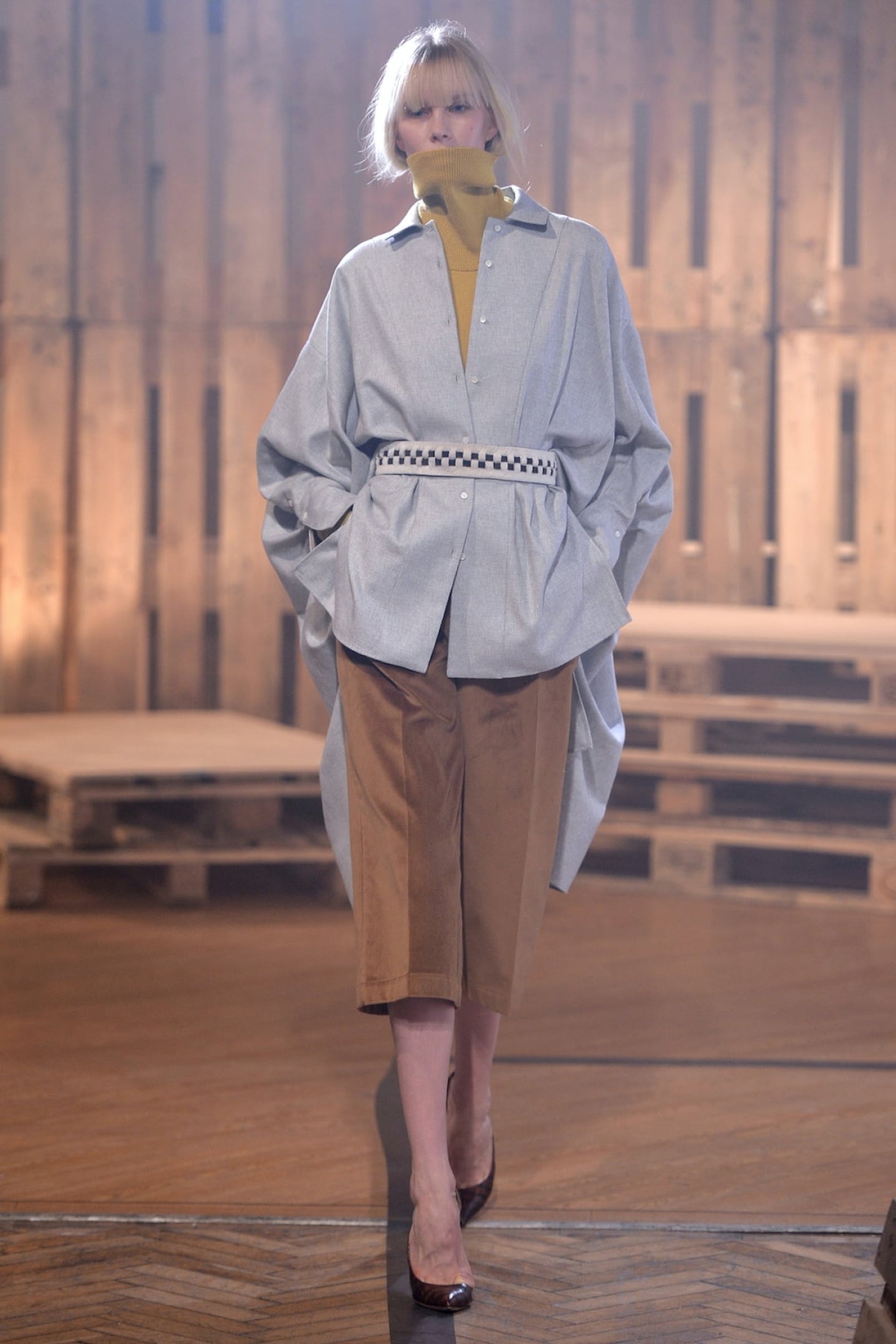
The Business of Fashion
Agenda-setting intelligence, analysis and advice for the global fashion community.

Agenda-setting intelligence, analysis and advice for the global fashion community.

LONDON, United Kingdom — Matthew Harding and Levi Palmer, the designer duo behind 4-year-old London brand Palmer/Harding, are convinced by the need for a signature specialisation. "We started with £5,000 in savings and went into shirts. Not many people were doing [shirts] and it was easy way to compose a setting for the brand," said Harding. Today, the label's shirts — deconstructed, reconstructed, elongated and reimagined in every which way — represent 65 percent of the collection. "We are building a language by developing our core," added Palmer. "To be known only for an aesthetic, today, I think there are very few brands that can survive like that."
The collection was plain sailing: elongated lines, well-judged leather accents and arresting appliqué on some of the cuffs provided little novelty, but were wholly desirable. “Customers want to be their own aesthetic, it’s about style not fashion,” said Harding. “We removed a lot of concept; concept feels dated. Making reality is interesting; that inspires us now.”
It’s an unusual position for an emerging London label. As a hotbed of youth culture and home to some of the industry’s most prestigious design schools, London is the fashion capital best known for producing young conceptual labels. But with its generous and well-oiled support systems, such as Fashion East and NewGen, it is also perhaps the city that’s guiltiest of the premature idolatry that can easily derail the rise of promising brands.
From where aspirational customers are spending to Kering’s challenges and Richemont’s fashion revival, BoF’s editor-in-chief shares key takeaways from conversations with industry insiders in London, Milan and Paris.
BoF editor-at-large Tim Blanks and Imran Amed, BoF founder and editor-in-chief, look back at the key moments of fashion month, from Seán McGirr’s debut at Alexander McQueen to Chemena Kamali’s first collection for Chloé.
Anthony Vaccarello staged a surprise show to launch a collection of gorgeously languid men’s tailoring, writes Tim Blanks.
BoF’s editors pick the best shows of the Autumn/Winter 2024 season.